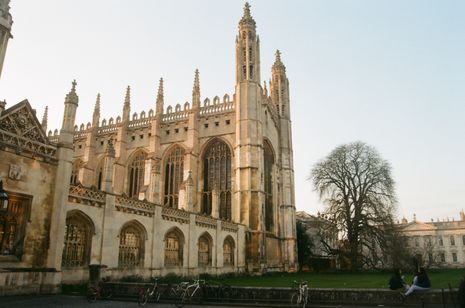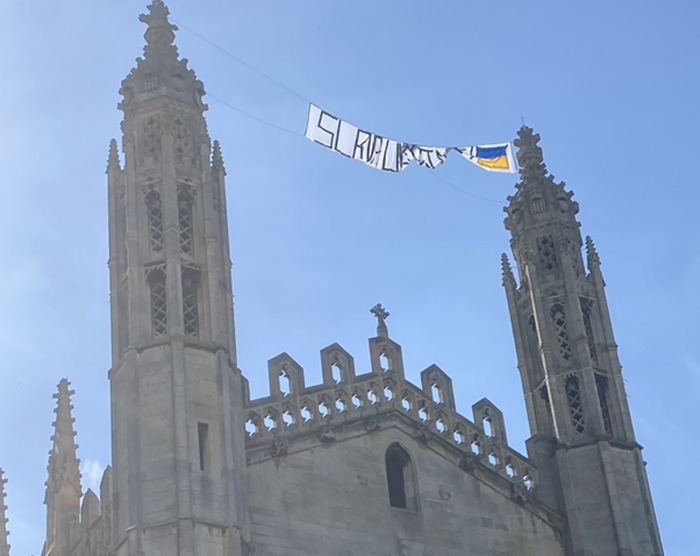Turing sculpture granted planning permission despite Historic England concerns
The memorial to the revered mathematician has been criticised by both Historic England and local councillors

King's College was granted planning permission (3/8) to install a sculpture of Alan Turing, despite concerns raised by Historic England.
The sculpture is designed to recognise the mathematician and King's alumnus, whose code breaking skills saved countless lives during the second world war.
However, Historic England fears the sculpture “would be at odds with the existing character of the College”.
The memorial will stand at over 3.6m tall and be composed of 19 steel blocks to form an abstract figure. It has been designed to turn a warm rust colour over time.
Historic England said it “would detract from the architectural landscape and the aesthetic significance of the college” and be “far more visible” than the proposals imply.
However, the College say the memorial’s location, next to the Wilkins building, is at “some distance” from the historic chapel.
Although the city council voted to approve the proposal, many councillors raised concerns about the sculpture’s accessibility to the public.
Those without Cambridge resident cards will be charged £10 entry to the College to see the memorial and will only be allowed to visit it at certain times. Councillor Katie Porrer argues this fee could represent a “barrier” for some people.

King’s welcomes Ukraine banner tied to Chapel
Councillor Dave Baigent agreed, suggesting that the sculpture should be housed on King’s parade and “not hidden away”.
Councillor Naomi Bennett also felt the location was not appropriate, saying she believed “no effort” had been made to fit it into the landscape, and “both the statue and the landscape deserve better”.
The College defended their proposed location, saying “Other more recently proposed sites were for the sculptor, either too picturesque and romanticising, by the river, or too isolating and monumentalising, on King’s Parade.”
The College maintains that the memorial provides considerable public benefit and are keen for members of the public and students alike to enjoy the “major work of art”.
King’s Provost, Michael Proctor, said: “It was in the College’s tolerant, open-minded and intellectual environment that Turing was able to live a fulfilled life both as a homosexual man and an abstract thinker, and we are enormously proud to acknowledge the significance of his unparalleled contribution to science and modern computing in this way.”
 News / Hundreds of Cambridge academics demand vote on fate of vet course20 February 2026
News / Hundreds of Cambridge academics demand vote on fate of vet course20 February 2026 News / University Council rescinds University Centre membership20 February 2026
News / University Council rescinds University Centre membership20 February 2026 News / Judge Business School advisor resigns over Epstein and Andrew links18 February 2026
News / Judge Business School advisor resigns over Epstein and Andrew links18 February 2026 News / Petition demands University reverse decision on vegan menu20 February 2026
News / Petition demands University reverse decision on vegan menu20 February 2026 News / Caius students fail to pass Pride flag proposal20 February 2026
News / Caius students fail to pass Pride flag proposal20 February 2026










